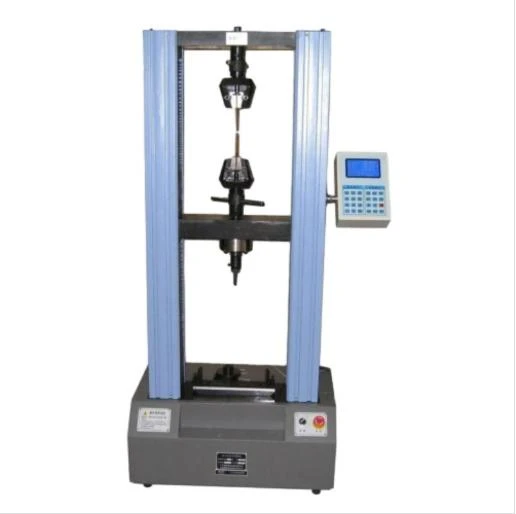Suppliers of Equipment for Measuring Conductor Resistance in Electrical Applications
Overview of Conductor Resistance Measurement Equipment Suppliers
Conductor resistance measurement is a critical aspect of electrical engineering, essential for ensuring the performance and safety of electrical systems. Accurate measurements help in diagnosing problems, optimizing system performance, and maintaining compliance with safety standards. With various suppliers in the market offering different types of measurement equipment, it’s crucial to understand what’s available to make informed decisions.
Understanding Conductor Resistance Measurement
Conductor resistance is the opposition that a conductor offers to the flow of electric current, which can affect the efficiency of electrical systems. The measurement of this resistance is vital for numerous applications, including power cables, transformers, and electric motors. The most common method of measuring conductor resistance is through a four-wire ohm measurement technique, which helps eliminate the resistance of the test leads and provides more accurate readings.
Types of Measurement Equipment
There are various types of equipment available to measure conductor resistance, each serving different functions and levels of precision
1. Micro-ohmmeters These are designed for high precision measurements of very low resistances, ideal for applications where minimal resistance is critical, such as in the testing of electrical contacts and connections.
2. Digital Multimeters (DMMs) While not exclusively designed for resistance measurement, high-end digital multimeters can accurately measure resistance and are commonly used due to their versatility.
3. Resistance Bridge This is a highly accurate method of measuring resistance, often used in laboratory settings. It provides detailed resistance measurements and is ideal for calibration purposes.
4. LCR Meters These are used to measure inductance (L), capacitance (C), and resistance (R), often making them very useful in testing components in laboratories and manufacturing.
5. Clamp Meters Some advanced clamp meters can measure the resistance in conductors without having to disconnect them from the circuit, offering a convenient solution in certain scenarios.
Key Suppliers in the Market
When looking for conductor resistance measurement equipment, it’s essential to consider reputable suppliers who provide reliable products
. Here are some key players in the industry1. Fluke Corporation Known for its robust testing and diagnostic tools, Fluke offers a wide range of conductance testers that are user-friendly and designed for durability in various environments.
conductor resistance measurement equipment suppliers

2. Keysight Technologies A leader in electronic test and measurement equipment, Keysight provides advanced measurement solutions that cater to both low resistance measurements and high-frequency applications.
3. Megger Specializing in insulation and testing equipment, Megger offers dedicated resistance measurement instruments, particularly for the electrical maintenance and field testing sector.
4. Klein Tools A reputable name in hand tools and testing equipment, Klein Tools produces reliable multimeters and clamp meters that can be used for measuring conduction resistance.
5. AEMC Instruments This company is known for its precision electrical testing instruments, including ohmmeters and resistance testers designed for both professionals and utility applications.
Factors to Consider When Choosing Equipment
When selecting conductor resistance measurement equipment, several factors should be taken into account
- Accuracy and Precision The primary goal of resistance measurement is accuracy. Consider the minimum resolution of the equipment to ensure it meets your needs.
- Range Different applications may require different measurement ranges. Select equipment that fits the resistance levels you anticipate encountering.
- Durability and Portability Depending on whether the equipment will be used in a lab or fieldwork, assess its durability and ease of transport.
- User Interface Consider ease of use, especially for those who may not be highly trained in electrical testing procedures. Digital displays and intuitive controls can significantly improve usability.
- Price and Warranty Due to the variability in equipment offerings, prices can range widely. It’s essential to balance your budget with quality while also considering warranties and after-sales support.
Conclusion
In conclusion, conductor resistance measurement is vital for the efficiency and safety of electrical systems. Numerous suppliers provide a variety of measurement tools, each with unique features suitable for specific applications. By choosing the right equipment, professionals can ensure accurate readings and maintain the reliability of electrical systems. Whether for fieldwork or laboratory testing, investing in quality measurement equipment is an essential step for any electrical engineer or technician.
-
CX-100 Manual Hydraulic Core Punching Machine - Efficient & Reliable
NewsAug.28,2025
-
Reliable Performance Testing with Advanced Aging Chamber Solutions
NewsAug.23,2025
-
Advancing Precision with Profile Projector Technology
NewsAug.23,2025
-
UV-LED Ultraviolet Crosslinking Technology: Innovation and Prospects
NewsAug.23,2025
-
Ensuring Safety and Compliance
NewsAug.23,2025
-
Electrical Properties Testing in Modern Applications
NewsAug.23,2025
 Copyright © 2025 Hebei Fangyuan Instrument & Equipment Co.,Ltd. All Rights Reserved. Sitemap | Privacy Policy
Copyright © 2025 Hebei Fangyuan Instrument & Equipment Co.,Ltd. All Rights Reserved. Sitemap | Privacy Policy

